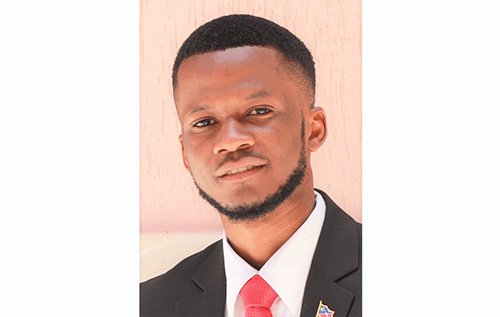Tio Erastus Nakasole
One has to understand why three things cannot be long hidden: the sun, the moon and the truth. The most important tool in the toolbox for Africa is for every human being to liberate themselves mentally.
History provides us with a very important reference point as to our background, but we cannot get stagnated by always referring to the past.
Africa is not established to live in the past but to realise itself as an independent continent, and not to be a reception of an instruction from non-African States.
Most African states are sovereign, secular, democratic and unitary states, founded upon the principles of democracy and the rule of law.
There is not much fragility in explaining and expanding when it comes to their past establishment.
The most critical and also concerning question is where they stand economically and their willingness to integrate themselves, emancipate themselves and push the amalgamation of their agendas, vision and mission to culminate the African Agenda 2063.
The deficient era
One of the business moguls in America, Robert Toru Kiyosaki, fathom to say that “The world of tomorrow belongs to those who can process information, see relationships and trends, and be agile and responsive to changes as the world change’’.
What this means for Africa is that to refrain from derailing the world we seek to live in, we need to possess great discipline and an iron hand if we are to succeed in this world.
Without painting everything with a broad brush, statistics show that most of the African countries’ economies have shown steadfast growth a few years after independence.
Issues such as unemployment were not high because of the economic development that was taking places, such as road construction, hospital facility and school being established.
On the other side of the coin, Zimbabwe has been regarded as the breadbasket of cereals of Africa. After 1965, the United Kingdom adopted an unfamiliar policy towards colonies.
A few colonies, such as Kenya, had now obtained independence and the British government had a policy of ‘No independence Before Majority African Rule (NIBMAR)’.
The Rhodesian Front, the white regime, run by Ian Smith, rejected that policy and wanted to maintain governance over Rhodesia.
The Smith regime swims against the tide of such independence of the black majority.
This gave birth to Zimbabwe being sanctioned by the British government, the Commonwealth and the United Nations.
On the macroeconomic level, these sanctions encouraged internal production and a desire to achieve self-sustenance because many countries refused to trade with Rhodesia.
Between 1964 to 1979, the Rhodesia Bush War occurred, which declared the Zimbabwe winners late in 1980.
Since 1990, policymakers in Zimbabwe worked to liberalise the economic system through the Economic Structural Adjustment Programme (ESAP), which allowed for an open market economy, driven by a strong export base.
Despite policy after policy initiative, poor fiscal policies, unstable foreign currency, dictatorship and corruption conditioned her survival.
From the whole African continent, I have cherry-picked one sample, which has some of the macroeconomic indicators that derail and overcast our vision as a whole.
Additionally, most African countries are struck by what I call structural unemployment.
This type of unemployment is wreaked by skill mismatch.
In other words, countries are having educated minds but the opportunities to apply what they specialise in are not there.
Goals and not a liability
Without copying and pasting, many of the world’s poorest nations are in Africa.
We are all created equal, but survival when it comes to longevity depends on the way we conduct ourselves in relation to what we make our appointment to.
Things such as African goals, targets, visions, agenda and plans are the blueprint that should be incorporated and carries the aspiration and embodiment of the African collective souls’ future.
Regional economic communities, such as CENSAD, COMESA, EAC, ECCAS, ECOWAS, IGAD, SADC and UMA, imposed to loosen the belt of trade tariffs, peace, security and migration; however, countries continue trading on a tied rope reap few benefits in this regard.
In 2022, alone, more than 1 200 people died in the Mediterranean Sea and xenophobia emerged because of poverty in their motherland.
Economically, whatever you did not fulfil becomes a debt.
What Africa can count and stand on
In the same vein, what you see depends on where you stand. Government, alone, does not create jobs on a large scale; it is SOEs that have to play that pivotal role.
The African government need to chart a course and embark upon a path that intersects with improving the state-owned enterprise (SOEs), given different business logic – linked to the ambition of creating new jobs and value addition to their natural resources.
Most of the African countries’ state-owned enterprises are in ICU. Day in and day out, they are on the bailout, worth millions of dollars.
Interestingly, Singapore is a good example of the efficient management of SOEs.
Singapore, with a population estimated at 5.7 million, has government-linked corporations (GLCs), aimed at jump-starting industrialisation, spearheading development and leading economic growth (primarily job creation) in various sectors – building strategic alliances with foreign companies to allow continuity of local economic development.
African Agenda 2063 will be a wishful desire unless all the arms of the government gear towards exponential value creation, when the right ideas, people and processes are put squarely in place together by each state with solid and energised leadership at all levels of the government.
*Tio Erastus Nakasole is an MBA student at the Namibia University of Science and Technology.
He holds an honours degree in Economics.


